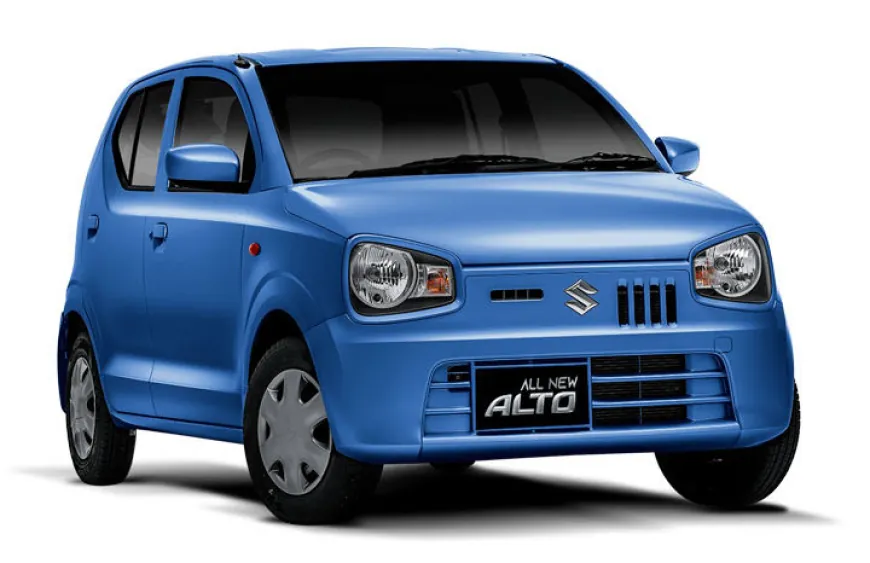The Role of Corporate Responsibility in Shaping Alto Prices in Pakistan
Explore how corporate responsibility influences the pricing of the Suzuki Alto in Pakistan, from ethical manufacturing to community engagement.

In recent years, corporate responsibility has become a key factor influencing various industries, including the automotive sector. In Pakistan, the Suzuki Alto has emerged as a popular choice among consumers, known for its affordability, fuel efficiency, and compact design. However, the pricing dynamics of the Alto are not solely determined by market forces; corporate responsibility initiatives significantly impact the pricing structure and consumer perception. This blog explores how corporate responsibility shapes the Suzuki Alto price in Pakistan.
1. Ethical Manufacturing Practices
Corporate responsibility begins with ethical manufacturing practices. Suzuki, as a leading automotive manufacturer, has made strides to ensure its production processes are environmentally sustainable and socially responsible. This commitment can lead to:
- Increased Production Costs: Implementing eco-friendly practices and ensuring fair labor conditions may increase manufacturing costs. These costs can be reflected in the final price of the Alto.
- Consumer Trust: Brands that prioritize ethical practices tend to cultivate trust among consumers, which can lead to higher demand and potentially allow for a justified increase in pricing.
2. Sustainable Supply Chain Management
Sustainability in supply chain management is another aspect of corporate responsibility that affects the pricing of vehicles like the Alto. This involves:
- Sourcing Materials Responsibly: By using sustainable materials and suppliers who adhere to ethical practices, manufacturers may incur higher costs, which can influence vehicle pricing.
- Reducing Carbon Footprint: Investing in sustainable logistics and transportation methods may also add to operational expenses, ultimately impacting the retail price of the Alto.
3. Community Engagement and Development
Corporate responsibility extends beyond manufacturing practices to community engagement and development. Suzuki's involvement in local communities can positively impact its brand image and sales:
- Community Development Programs: Initiatives aimed at improving local communities can create goodwill and loyalty among consumers. As customers perceive the brand as socially responsible, they may be more willing to pay a premium for products like the Alto.
- Corporate Philanthropy: Supporting education, healthcare, and infrastructure development enhances Suzuki’s reputation, influencing consumers' purchasing decisions and potentially allowing for a higher price point for the Alto.
4. Compliance with Regulatory Standards
Corporate responsibility also encompasses compliance with government regulations and standards, particularly regarding environmental protection and safety:
- Investment in Compliance: Meeting regulatory standards often requires significant investment in technology and processes. These costs can contribute to the overall pricing strategy of the Alto.
- Market Positioning: A brand known for its compliance and safety can position itself as a premium option, allowing for competitive pricing in the market.
5. Consumer Awareness and Preferences
As consumers become more aware of corporate responsibility issues, their preferences can shift, impacting pricing:
- Demand for Responsible Brands: There is a growing trend among consumers to favor brands that demonstrate social and environmental responsibility. This demand can enable brands like Suzuki to price the Alto competitively while maintaining a focus on corporate responsibility.
- Impact on Resale Value: Vehicles that are perceived as environmentally friendly or produced by socially responsible companies may hold their value better, influencing initial pricing strategies.
Conclusion
The interplay between corporate responsibility and pricing strategies is increasingly significant in Pakistan's automotive market. For the Suzuki Alto, corporate responsibility initiatives not only enhance brand reputation but also influence production costs, consumer preferences, and overall market positioning. As the automotive industry evolves, manufacturers that prioritize corporate responsibility may find themselves better equipped to navigate pricing challenges while fostering loyalty among consumers. By embracing ethical practices, sustainable supply chains, and community engagement, Suzuki can shape the pricing dynamics of the Alto and ensure its ongoing success in the competitive market.

 Anokshi kumari
Anokshi kumari 










